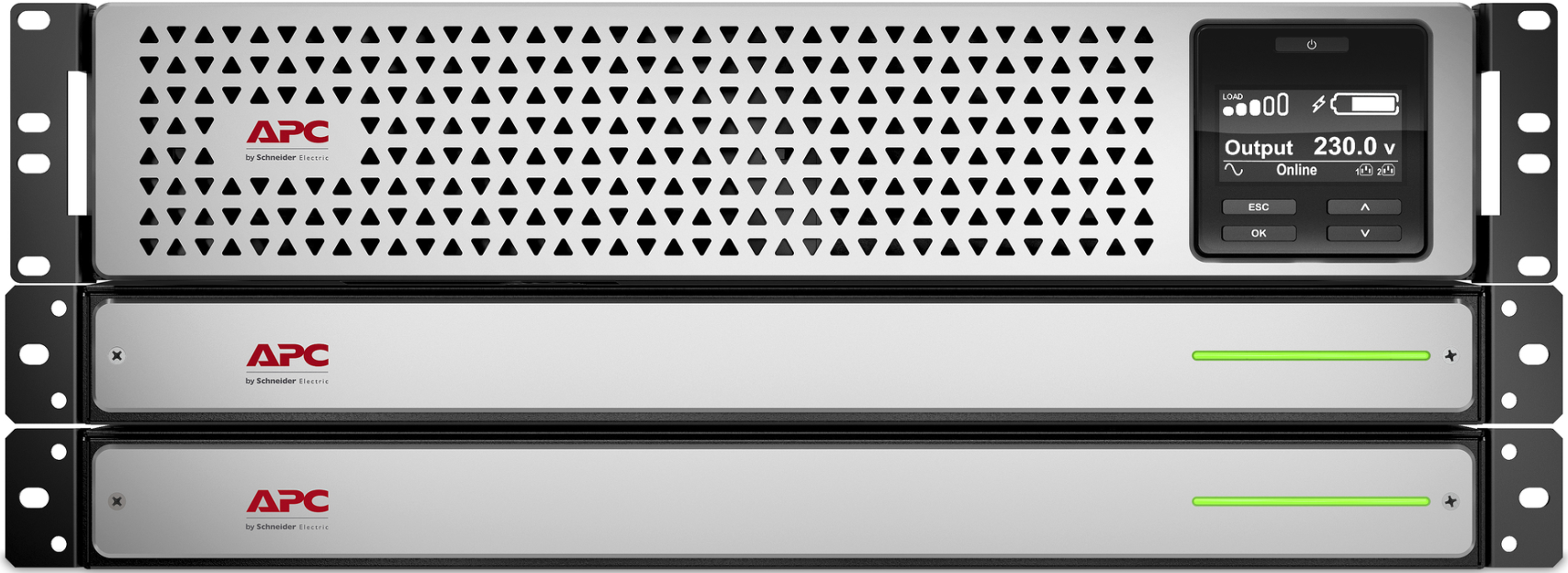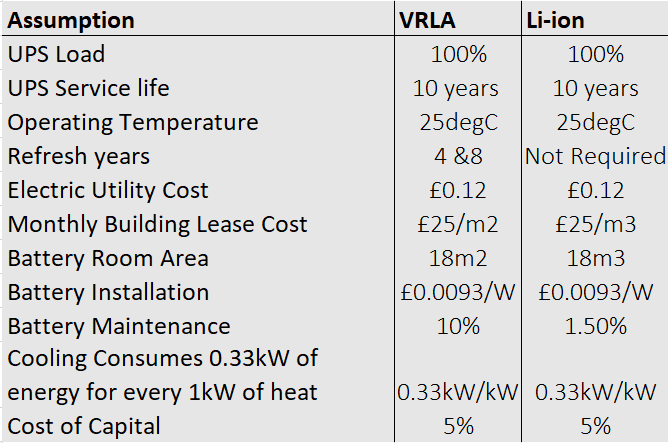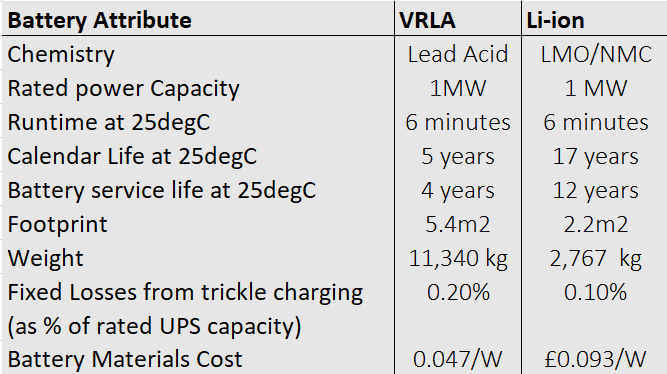
Is Lithium Ion Right for Your Data Centre?
The price of Lithium Ion (li-ion) Batteries has decreased over recent years making this technology a viable option for data centre UPS.
But are they right for you?
Advancements in Li-ion technology mean they can now provide UPS vendors with the right balance of price, energy density, power, safety, and reliability for UPS applications. This progress has largely been driven by requirements set forth in the electric car industry. This short post aims to sum up the pros and cons of the new Li-ion UPS battery technology to help you establish if it’s right for your data centre.
The Benefits – When Compared to Traditional Lead Acid Systems
- 39% lower Total Cost of Ownership, see table below
- Fewer battery replacements (perhaps none) required over the life of the UPS removes the risk of downtime posed by battery replacement and eliminates refresh cost
- Li-ion can operate at higher temperatures and therefore reduce the need for cooling
- Less than 1/2 the footprint and 1/3rd the weight for the same capacity
- Inclusion of sophisticated battery monitoring systems (know exactly what’s happening)
- Up to ten times more discharge cycles depending on chemistry, technology, temperature, and depth of discharge
- About four times less self-discharge (i.e. slow discharge of a battery while not in use)
- Four or more times faster charging, key in multiple outage scenarios
However Li-ion Batteries Have two Disadvantages when Compared to Lead Acid
- About 1.2 to 2x more capex for the same amount of energy due to higher manufacturing cost and cost of required battery management systems
- Stricter transportation regulations
The main drive towards large scale adoption of this technology is, not surprisingly, Total Cost of Ownership
The table above shows how the total cost of ownership is 39% less for Li-ion. The example used for comparison is a 1MW UPS over a period of 10 years.
(Data extracted from Schneider Electric white paper 229)
Capex calculations are based on, battery cost, install cost and transportation cost.
Opex calculations are based on, battery refresh, energy costs, space lease costs and battery maintenance.
See tables below for full parameters.
To Answer the Original Question
- If it’s time for your UPS first battery replacement, Li-ion may be worth considering should you have a compatible UPS system. Schneider currently offers Li-Ion with Smart UPS, Galaxy VX, Galaxy VM, Symmetra MW and Galaxy 7000 UPSs.
- If your UPS is more than 5 years old, the batteries will likely outlive your UPS, Li-ion may therefore not be a logical choice.
- If you have sufficient funds to cover the higher initial investment, Li-ion is significantly smarter future investment choice.
- Is space in high demand within your existing data centre? The answer to this is usually ‘Yes’. Li-ion will enable you to free up space and increase revenue.






